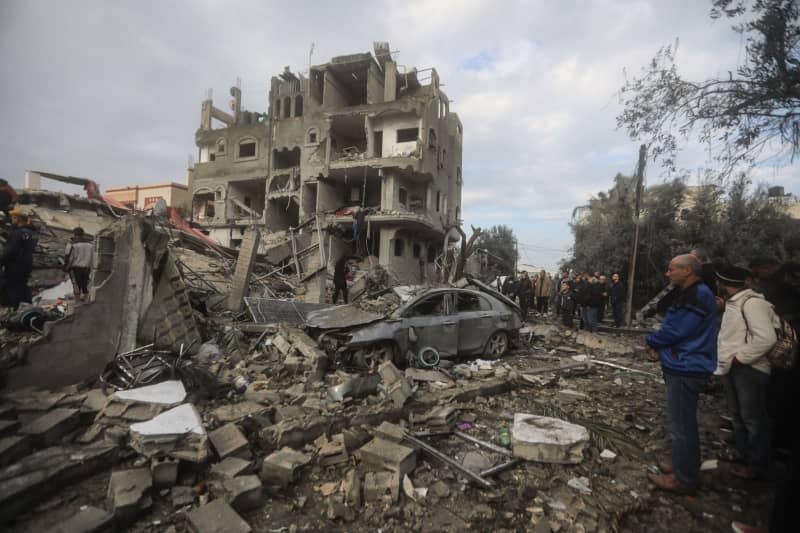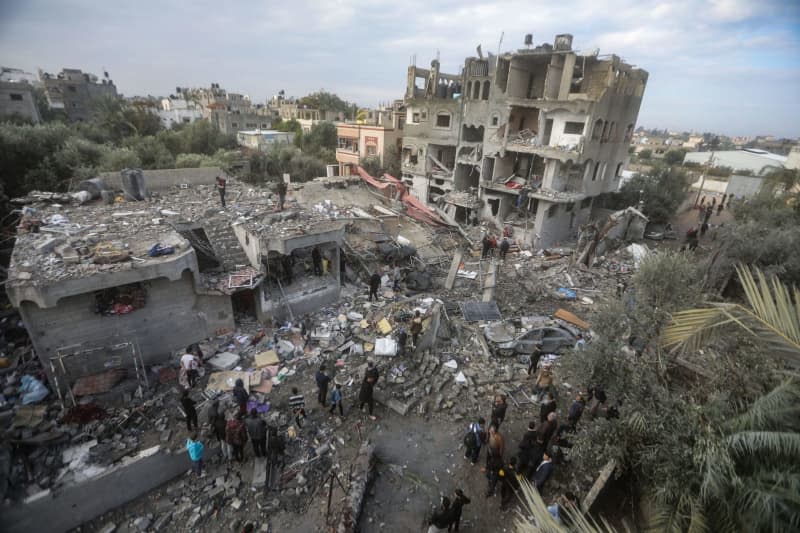

In the ongoing conflict between Hamas and Israel, Hamas has recently rejected a proposed short ceasefire and instead, is advocating for a permanent truce. This rejection marks a potential escalation of hostilities between the two parties. Seeking a lasting solution to the violence, Hamas’ refusal comes amidst renewed clashes between Israel and Gaza. Despite efforts by mediators to secure a temporary ceasefire, they have been met with unsuccessful outcomes. The rejection by Hamas highlights their determination to find a resolution that will put an end to the ongoing tensions and bring about a lasting peace.
▶ [Kucoin] Transaction fee 0% discount CODE◀
Hamas Rejects Short Ceasefire, Pushes for Permanent Truce
I. Introduction
In the midst of the ongoing hostilities between Hamas and Israel, Hamas, the Palestinian political and military organization, has taken a firm stance by rejecting a proposed short ceasefire and instead, demanding a permanent truce. This rejection holds significant implications for the escalation of conflict in the region, as it demonstrates Hamas’ determination to seek a lasting solution to the deep-rooted issues at hand. In this article, we will delve into the background of the conflict, analyze the significance of Hamas’ rejection, discuss the potential escalation of the conflict, examine Hamas’ objective for a permanent truce, review the recent clashes between Israel and Gaza, highlight the unsuccessful attempts by mediators to secure a ceasefire, explore international reactions to the rejection, and finally, assess the implications of these developments for the wider region.
II. Background
The Israel-Palestine conflict has been an enduring and deeply complex issue that has resulted in decades of violence, suffering, and diplomatic impasses. The conflict primarily revolves around the competing claims to the land by both Israelis and Palestinians, with each side seeking the establishment of their own sovereign state. Hamas, an Islamic fundamentalist organization, holds power in the Gaza Strip, an area which has been subjected to a blockade by Israel since 2007. This blockade severely restricts the access of essential goods and services, exacerbating the already dire humanitarian situation in the region. It is against this backdrop that the recent conflict between Hamas and Israel emerged.
III. Hamas’ Rejection and its Significance
By rejecting the proposed short ceasefire and advocating for a permanent truce, Hamas has demonstrated its unwillingness to settle for a temporary respite from hostilities. This rejection sends a clear message to Israel and the international community that Hamas is seeking a sustainable and long-lasting solution to the conflict. While some may interpret Hamas’ rejection as an obstacle to achieving any form of ceasefire, it is important to recognize that their demand for a permanent truce reflects an urgent need to address the underlying issues that perpetuate the cycle of violence in the region. Hamas’ rejection thus serves as a catalyst for renewed dialogue and a greater emphasis on finding a comprehensive resolution to the conflict.
IV. Potential Escalation of Conflict
Hamas’ rejection of a short ceasefire has the potential to escalate the conflict between Hamas and Israel. As tensions continue to rise, both parties may resort to more aggressive military actions, increasing the casualties and devastation on both sides. Hamas’ rejection can be seen as a response to the failure of previous ceasefires, which have proven to be short-lived and have not addressed the core grievances of the Palestinian people. Should the conflict escalate, it would not only lead to further loss of life and destruction but also hinder any hopes for a peaceful resolution in the future.
V. Hamas’ Objective: A Lasting Solution
Hamas’ rejection of a short ceasefire aligns with their objective of achieving a lasting solution to the Israel-Palestine conflict. By advocating for a permanent truce, Hamas aims to address the root causes of the ongoing hostilities, such as the occupation of Palestinian territories, the blockade of Gaza, and the denial of Palestinian self-determination. They argue that a temporary ceasefire only provides a brief pause without addressing the fundamental injustices faced by the Palestinian people. Hamas believes that a comprehensive and sustainable resolution would require a genuine commitment from Israel to recognize the rights and sovereignty of the Palestinian people.
VI. Renewed Clashes between Israel and Gaza
The rejection of a short ceasefire by Hamas comes amidst a renewed escalation of clashes between Israel and Gaza. Recent days have witnessed a sharp increase in violence, with both sides exchanging rocket fire and airstrikes. Civilian casualties have tragically mounted, further deepening the humanitarian crisis in Gaza. The clashes have reignited long-standing grievances, heightening tensions and paving the way for an uncertain future.
VII. Mediators’ Unsuccessful Attempts at Ceasefire
Efforts by mediators to secure a temporary ceasefire have proven unsuccessful in light of Hamas’ rejection. Multiple international actors, including Egypt, Qatar, and the United Nations, have been engaged in diplomatic efforts to de-escalate the situation and bring about a period of calm. However, the rejection by Hamas indicates the immense challenges faced by mediators in balancing the interests of both parties and achieving a resolution that is acceptable to all. The stalemate raises questions about the effectiveness of current mediation methods and calls for a reevaluation of the strategies employed to broker a ceasefire.
VIII. International Reactions
The rejection of a short ceasefire by Hamas has drawn varied international reactions. Some countries, particularly those sympathetic to the Palestinian cause, support Hamas’ demand for a permanent truce and stress the need for Israel to address the underlying issues fueling the conflict. Others, primarily allies of Israel, view the rejection as a hindrance to peace and security in the region. The international community remains divided on the appropriate course of action, reflecting the complexities and divisions that surround the Israel-Palestine conflict. It is crucial for international actors to exercise restraint and continue engaging in constructive dialogue to find a way forward.
IX. Implications for the Region
The rejection by Hamas has broader implications for the stability and security of the region. The perpetuation of the Israel-Palestine conflict not only affects the lives of Israelis and Palestinians but also has far-reaching consequences for neighboring countries. The ongoing violence further fuels anti-Israeli sentiment and radicalization among various groups, potentially destabilizing the wider Middle East. Moreover, the conflict has the potential to strain diplomatic relations between countries that align themselves with opposing sides. A comprehensive resolution is therefore necessary not only for the sake of peace between Israelis and Palestinians but also to mitigate the wider regional repercussions.
X. Conclusion
Hamas’ rejection of a short ceasefire and their insistence on a permanent truce indicate their determination to seek a lasting solution to the Israel-Palestine conflict. While this rejection raises concerns over the potential escalation of the conflict, it also presents an opportunity for renewed dialogue and a comprehensive resolution that addresses the core grievances of both parties. The ongoing clashes between Israel and Gaza, coupled with unsuccessful attempts by mediators to secure a ceasefire, highlight the urgency and complexity of finding a sustainable peace. The international community must remain engaged and committed to supporting a just resolution that ensures the rights and security of both Israelis and Palestinians, while also considering the broader implications for the region. Only through earnest and inclusive dialogue can a lasting peace be achieved in the face of ongoing hostilities.
RELATED POSTS
View all






